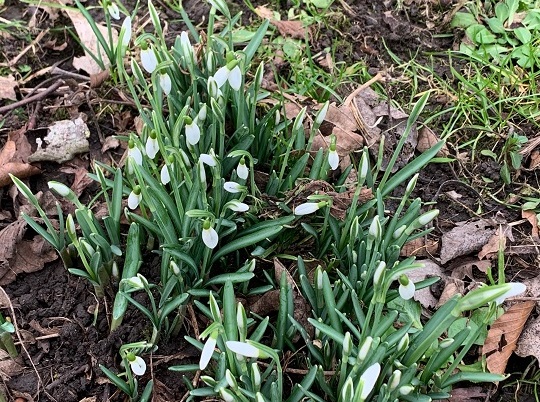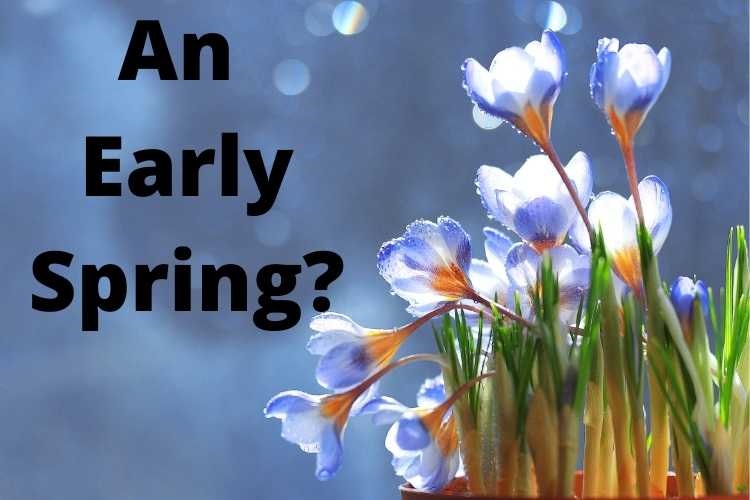The snowdrops are out so it must be spring again -or is it?
6th Feb 2022
The calendar may say that Spring doesn’t begin until mid-March but we all know that warmer weather is on the way when we see snowdrops and daffodils sprouting up, birds singing, bumble bees flying and lambs gambolling in the fields. Or at least may have been the case in years gone by.
Now it seems we don’t have to wait until spring officially rolls around. The weather is getting warmer earlier and traditional spring flowers are flowering sooner. In fact, a study by Cambridge University has found native UK plants are flowering a month earlier on average.
I’m sure many of us have seen evidence of this first-hand in our own gardens or as we walk through the countryside. Snowdrops have always been an early plant but I spotted those in the photo below in the first week of January this year.

Spring flowers in January
Snowdrops, crocuses, and daffodils are all arriving earlier. But it isn’t just spring flowers which have had their growth patterns altered by climate change. The Cambridge study found that herbs are arriving on average 32 days earlier than they did before global temperatures began to significantly rise.
Spring plants and climate change
Of course, you don’t have to be an Oxbridge boffin to realise that climate change is affecting the way plants behave. And whilst it is always a delight to see flowering plants in the woods and fields there are environmental consequences to spring flowers, or any other plants, arriving early.
The issue is that with spring arriving early and the late arrival of autumn plants and wildlife need to adapt to the changing timeline of the seasons. Birds and insects rely heavily on seeds, fruits and pollen from plants but they expect them to flower at certain times.
If the plants are flowering earlier the birds and bees need to adapt their behaviour to match although there is also the issue of early flowering trees and plants being damaged by frost and having their harvest spoiled.
How is climate change affecting garden plants?
Again, we will all have our own anecdotal evidence here. And I’m willing to bet most of us will have noticed some of our plants flowering earlier and longer than was the case even five years ago. Evidence which is backed up by the experts.
Although the Cambridge study focused on native plants Dr John David, RHS head of horticultural taxonomy, told the BBC, “The main focus of this study is on native plants and so we don't yet have a clear picture of the full impact of these changes on garden plants, but would expect a similar pattern and have seen indications of this in our own RHS gardens such as the apple flowering times in our orchard at RHS Garden Wisley."
It would seem that while the world (hopefully) tackles the issue of climate change along with wildlife we’ll also have to adapt to the changing behaviour of our garden plants as well as those ‘in the wild’.
Prepare your garden for spring and summer by ordering your plants, trees and shrubs now. Check out the huge range of new plants we have available this year by visiting our website here.


